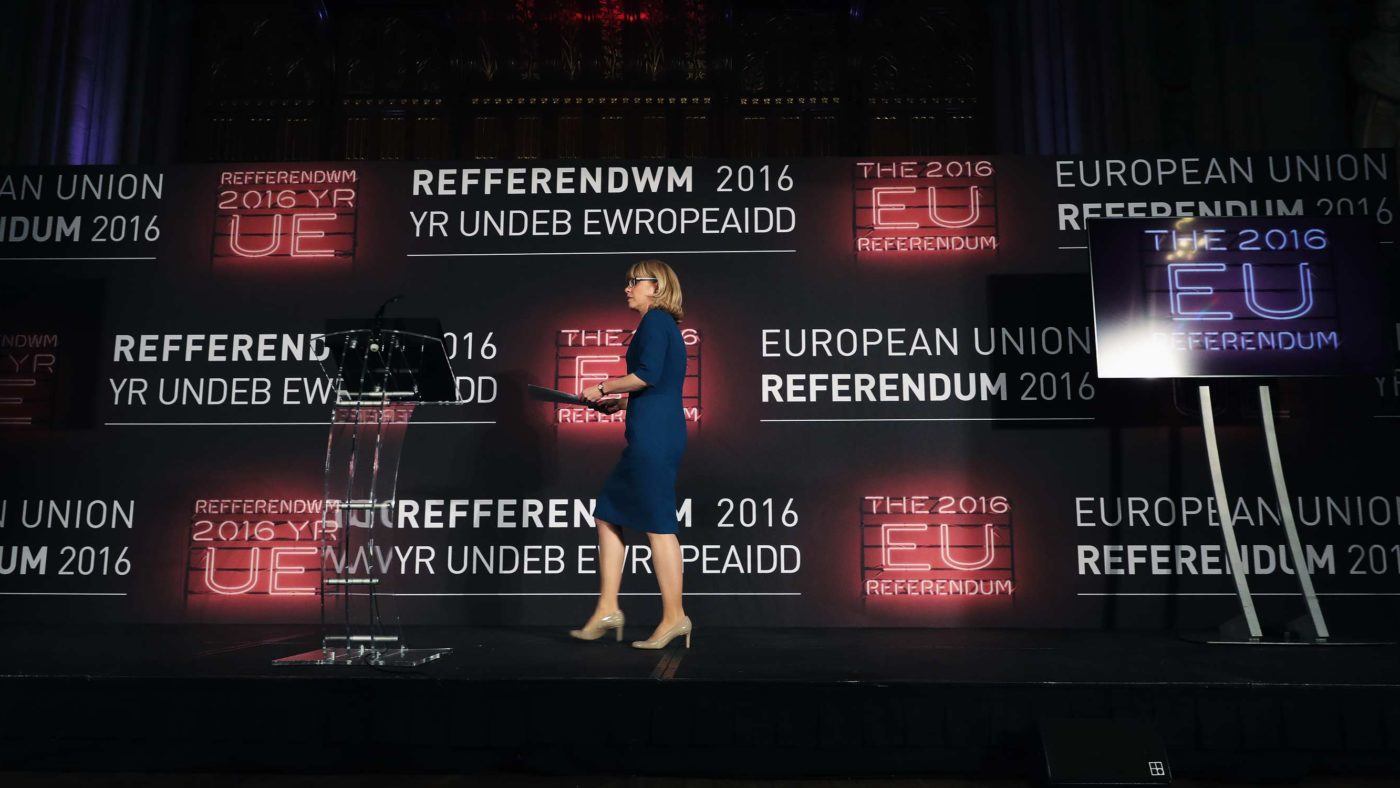So Brexit it is. After 25 years of complaining about the EU, the British people were asked to choose and they’ve chosen to go. Britain re-emerges, blinking, onto the global stage, bringing an end to its long regional slumber. The geopolitical map of the West from here is uncharted. Britain will seek new allies – but who? The European Union will react to the departure of its third largest member – but how? All, from here, is flux and change.
The Remain campaign offered an extraordinarily negative (and frequently bitter) pitch of a sort we’ve never seen in national UK politics, at least in living memory. Sensing that many Britons had a deep and long-lasting suspicion of the EU, Remain tried to tell them, in effect, “We hate the EU too, but it would be too dangerous to leave.” They tried to offer an anti-European’s case to Remain. Perhaps that was designed to appeal to swing voters, but it created a strange overtaking. Most Britons, I believe, are more positive about the EU than the Remain side, and in particular many who voted Leave are more positive about the EU than Remain was. Britons know that there have been many good things about the EU. But most don’t believe it’s right for us any more.
A Project Fear, based on saying everyone else will be beastly to us if we Leave and we’re too weak to cope with that, was always, in my view, unlikely to sit well with the self-image of Britons. When Obama threatened us, Britons told him where to shove it. When the OECD and G8 said Brexit would destabilise the world, Britons were flattered by the notion we are that important. When EU leaders said they’d have an economic battle with us, Britons thought: “We may get a black eye, but you should see the other guy.”
The one moment I started to fear Brexit might lose was after last week’s terrible events, when polls showed a huge and instant swing to Remain. But of course I should have known that Britons are used to using opinion polls to give their verdict on events rather than to say how they will actually vote. The British voter is bigger and more experienced with democracy than to let herself be swayed into long-lasting error by natural sympathy.
The British voter is also bigger and more experienced with democracy than to think expertise is a numbers game. She knows that most experts rejected Thatcherism, said we should join the euro, said Iraq had WMD in the 1990s and early 2000s. Having the majority does not make an expert right. That does not mean that Britons reject the efficacy of experts, though. Much press commentary confused not bowing to an experts’ consensus with not being interested in expertise at all. The British voter knows that democracy means she gets to choose which expert she listens to. She chose me.
There will be short-term economic consequences. I said 2-3% of lost GDP growth during the campaign, and I’m sticking with that. Voters were under no illusions. Polls said most expected negative economic consequences in the first five years, but improvement over the medium to long term – the Lilico-Lyons macroeconomic story turned into an opinion poll return.
Financial markets have been volatile, as is their wont in such cases. Change tends to be unpopular for markets, regardless of what that change is. There is an established economic literature studying the effects on financial markets of US presidential party changes. Markets always react badly to the President changing, regardless of who the candidates are or how good they prove to be for the economy.
Financial markets are not especially good at predicting political events. Betting markets had Remain at over 90% early on the referendum result night. The pound reached $1.50. But they were wrong about the political outcomes. They’re wrong about the political economy of Brexit as well. We will do new deals and make new alliances that financial markets are not reflecting at all at this stage.
Cameron was of course always going to have to resign immediately. Having secured so little with his renegotiation and having spent the campaign endlessly declaring what a weak negotiating hand we’d have with everyone in the world if we left the EU, there was no way he could play a role in negotiating what Brexit means.
We’ll do some new deal with the EU. That’s not the big issue now. The big issue is what new mates we manage to acquire over the next 15 years. I want us to try for Canada and Australia, creating a vast Fourth Player in global politics, to add to the US, Europa and China. Whatever we do, though, we must react to Brexit by being more open, more global, more welcoming of outsiders, more engaged with the world, not less.
Those who think as I do have won the Brexit war. Now it’s time to win the Brexit peace.


